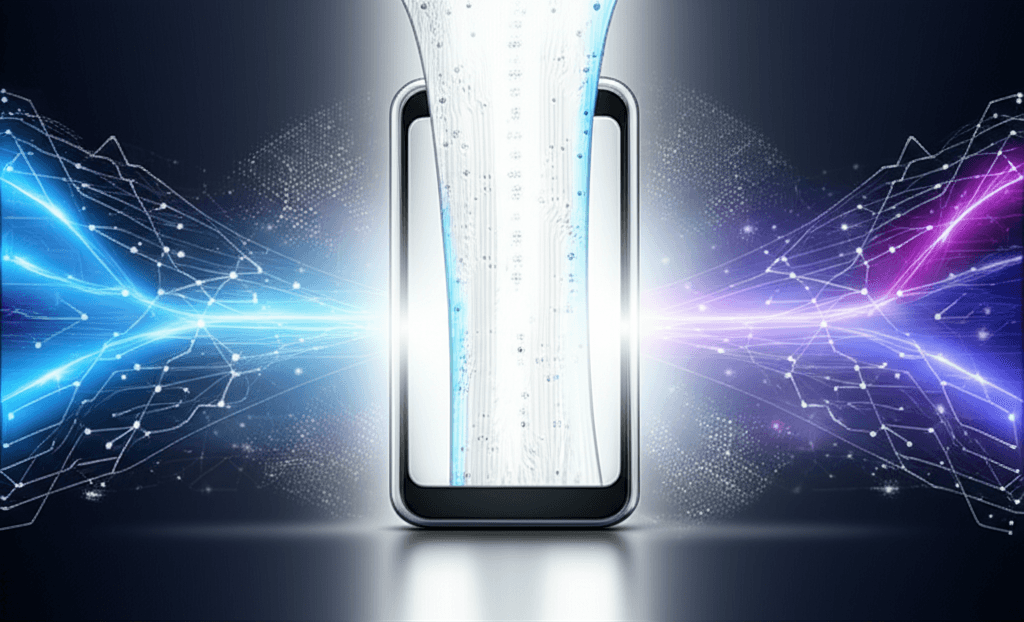Musk Threatens Apple Antitrust Suit Over OpenAI App Store Power
Musk's antitrust claims against Apple's OpenAI deal expose the high-stakes fight for AI dominance and fair market access.
August 12, 2025

A new front has opened in the burgeoning artificial intelligence wars, with Elon Musk threatening legal action against Apple over its partnership with OpenAI. The billionaire entrepreneur has accused the iPhone maker of anticompetitive behavior, alleging that Apple's App Store practices create an unfair advantage for OpenAI's ChatGPT and hinder rivals, including his own AI company, xAI.[1][2][3][4][5] Musk's claims, made without immediate evidence, escalate his long-running feud with OpenAI and place Apple's influential role in the AI ecosystem under a microscope.[6] The dispute highlights the intense competition and high stakes involved as major technology companies vie for dominance in the rapidly evolving field of generative AI.
At the heart of Musk's complaint is the assertion that Apple is engaging in an "unequivocal antitrust violation" by manipulating its App Store rankings to favor ChatGPT.[1][4] In a series of posts on his social media platform X, Musk claimed that Apple's policies make it "impossible for any AI company besides OpenAI to reach #1 in the App Store."[2][7] He questioned why his apps, X and the AI chatbot Grok, were not featured in the App Store's "Must Have" section despite their high rankings.[1][7] As of early August 2025, while ChatGPT held a top spot, Grok had also climbed to become a top-five app overall in the U.S. App Store.[1][8] Musk's company, xAI, has vowed to take "immediate legal action" against Apple, a move that could add to the tech giant's existing antitrust scrutiny from regulators in the United States and Europe.[2][4][9] This is not the first time Musk has taken aim at the Apple-OpenAI alliance; he previously voiced significant security and privacy concerns over the integration of OpenAI's technology at the operating system level on Apple devices.[10][11]
The controversy stems from a landmark partnership announced by Apple to integrate OpenAI's technology, including the powerful GPT models, into its new "Apple Intelligence" platform.[12][13][14] This integration will see ChatGPT woven into Apple's ecosystem, including iOS, iPadOS, and macOS, and will allow the virtual assistant Siri to tap into ChatGPT's capabilities for more complex queries.[12][13] For Apple, a relative latecomer to the generative AI race, the partnership is a strategic move to quickly offer advanced AI features to its massive user base and reassure investors that it is keeping pace with competitors like Microsoft and Google.[12][15][16] The collaboration is designed to enhance Siri, provide system-wide writing tools, and generate images, with Apple emphasizing that user privacy will be protected by prompting for permission before sending queries to ChatGPT's servers.[12][13] This integration is seen by analysts as a way for Apple to differentiate its products and for OpenAI to vastly expand its reach to millions of new users.[12][17]
The accusations from Musk have not gone unanswered. OpenAI CEO Sam Altman publicly rebuffed the claims, suggesting a degree of hypocrisy.[1][18] Altman retorted on X, stating, "This is a remarkable claim given what I have heard alleged that Elon does to manipulate X to benefit himself and his own companies and harm his competitors and people he doesn't like."[1][18] This public spat adds another layer to the deeply strained relationship between Musk and Altman. Musk was a co-founder of OpenAI in 2015, initially established as a non-profit research lab dedicated to ensuring artificial general intelligence benefits all of humanity.[19][20] He has since become a staunch critic, arguing that under Altman's leadership and through its close, multi-billion dollar partnership with Microsoft, OpenAI has betrayed its founding mission by prioritizing profits.[20][10] Musk has a separate, ongoing lawsuit against OpenAI and Altman, alleging they have transformed the company into a de facto subsidiary of Microsoft and have abandoned the principle of open-source development.[21][19][22]
The implications of this conflict extend beyond the personal animosity between two of tech's most prominent figures. It strikes at the core of the competitive landscape in the AI industry, where a few large players are accumulating immense power. The integration of a leading AI model like ChatGPT directly into the world's most popular mobile operating system could create a significant barrier to entry for smaller AI companies and competitors like Musk's xAI.[23] This has the potential to stifle innovation and limit consumer choice.[23] The situation is further complicated by the fact that other AI apps, such as DeepSeek from China, have previously reached the number one spot on the App Store, a point that some observers argue may weaken Musk's case of an absolute OpenAI monopoly.[6][23] Nevertheless, the direct integration of a competitor's technology at the OS level presents a unique and formidable challenge that app store rankings alone do not capture.
In conclusion, Elon Musk's threat of legal action against Apple introduces a significant new dimension to the global AI power struggle. While his specific claims of App Store manipulation lack public evidence, they tap into broader anxieties about antitrust issues and the concentration of power within Big Tech. The dispute is not merely a clash of personalities but a reflection of the critical battle for control over the future of artificial intelligence. The outcome of this threatened lawsuit, should it materialize, could have profound implications for how AI is developed, distributed, and accessed by billions of consumers, potentially reshaping the competitive dynamics of an industry poised to redefine the digital world.
Sources
[4]
[7]
[10]
[11]
[12]
[13]
[14]
[15]
[16]
[17]
[19]
[20]
[21]
[22]
[23]